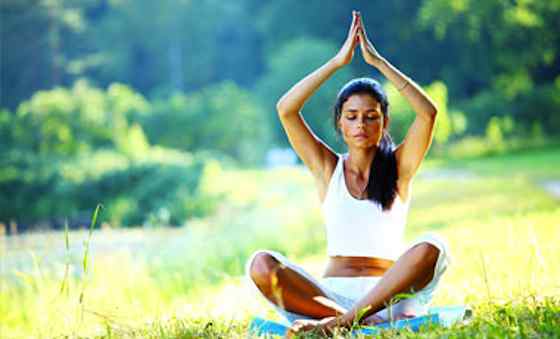- MENU
- HOME
- SEARCH
- WORLD
- MAIN
- AFRICA
- ASIA
- BALKANS
- EUROPE
- LATIN AMERICA
- MIDDLE EAST
- United Kingdom
- United States
- Argentina
- Australia
- Austria
- Benelux
- Brazil
- Canada
- China
- France
- Germany
- Greece
- Hungary
- India
- Indonesia
- Ireland
- Israel
- Italy
- Japan
- Korea
- Mexico
- New Zealand
- Pakistan
- Philippines
- Poland
- Russia
- South Africa
- Spain
- Taiwan
- Turkey
- USA
- BUSINESS
- WEALTH
- STOCKS
- TECH
- HEALTH
- LIFESTYLE
- ENTERTAINMENT
- SPORTS
- RSS
- iHaveNet.com: Health
Derek Beres

The benefits of meditation have been studied in scientific laboratories for a generation now, though people with a dedicated meditation practice have known the results for milllennia. The ability to think clearly and the reduction of stress and anxiety are two of the most prominent rewards to be had. It's hard to overstate how important it is to spend a little time with yourself in quiet reflection every day. I've been building my own practice for years. Currently, I carve a few minutes from each day to sit on the ground, close my eyes and breathe.
Meditation serves many functions in our lives. Yet in some way, all of them are about creating space -- between our breaths, between our thoughts and between our actions. With that space, we are able to think more clearly and more effectively -- essentially, we are able to be less emotionally volatile and make more rational decisions.
There are many different ways to meditate. A few basics: Be seated comfortably, wear clothing that won't feel tight against your skin, and make sure your spine is straight. Most practitioners close their eyes, but even that is open for interpretation; there is a style of meditation that involves watching candlelight flicker. One place to start is with this Mayo Clinic instructional video:
Here are a few more tips that I've learned over the years that have helped me build my practice and that will help you build yours.
Don't worry about getting it right the first time ... or the second.
Meditation is not something that just happens, and it doesn't always feel great. Slowing down your thoughts is not easy. As one meditation teacher, Sally Kempton, once said in a workshop, you don't really ever have no thoughts. The idea is to hold one thought in your mind for a sustained period of time. To be able to accomplish this, you must make the effort to sit and cultivate stillness. There is no right or wrong way to do it. Some days will be better than others.
Be comfortable.
I know some schools of meditation are very stringent about how to sit. I also know a number of people who can wrap their legs into lotus position, in which the tops of their feet rest on their thighs in a cross-legged position, easily. I'm not one of those people; I have ligament tears in my right hip and left knee. I can sit comfortably on a cushion with my legs crossed, just not folded one on top of the other. If a chair is the most comfortable place for you to sit, that's fine. As long as your spine is straight, you're good to go -- unless you're lying down, that is. But I think it's too easy to fall asleep this way. There is a form of yoga called Yoga Nidra, which does involve lying down and might be a great stress-relieving technique if this is your preferred position.
Focus on one thing.
What that thing is depends on your style of meditation. Some people form a mandala -- a piece of circular artwork that is popular in Tibetan Buddhism and Hinduism and explores various themes in life through intricate, detailed linework and graphics -- in their mind. Others count, which provides a stable, hypnotizing rhythm. Still others like to meditate on a chosen deity, which can be from any religious or spiritual tradition. I usually focus on my breathing. How am I breathing? How long are my breaths? What is the quality of each breath? In general, you don't want to focus on dynamic objects, like actual people. They change and move, and you are trying to still things in your head. There are too many emotional attachments to other humans anyway. We are looking to lessen -- not strengthen -- our bonds, at least for this short bit of time.
Stop while you're still enjoying it.
Robert Thurman, the first American to be ordained a Tibetan Buddhist monk in 1964, once said you should stop meditating while you are still enjoying it. If you tell yourself that you have to meditate for half an hour and can't stand 25 minutes of it, you won't want to do it again. So go ahead and stop after three minutes. It's OK. Then you'll find that you crave the moments spent in silence and will naturally want to extend them next time.
Copyright © All rights reserved.
AGING | ALTERNATIVE | AILMENTS | DRUGS | FITNESS | GENETICS | CHILDREN'S | MEN'S | WOMEN'S
Health - How to Meditate and Why